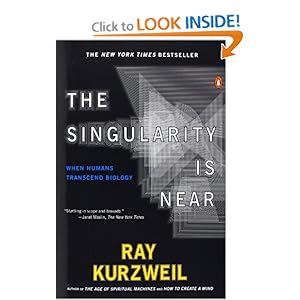 The Daily Dot tells us,
The Daily Dot tells us,
Transcendence is based directly on the principle of singularity, the moment when technology surpasses humanity. In fact, Dr. Caster, the film’s protagonist, even states as much in the trailer, asking an audience to, “Imagine a machine with the full range of human emotion. It’s analytical power will be greater than the collective intelligence of every person in the history of the world. Some scientists refer to this as the singularity. I call it Transcendence.”
Before we consider the merits of the principle of singularity, Transcendence has not transcended the laws of the box office. It has tanked under their weight.
Ray Kurzweil’s most famous work, The Singularity Is Near: When Humans Transcend Biology, defines the singularity as, “the union of human and machine, in which the knowledge and skills embedded in our brains will be combined with the vastly greater capacity, speed, and knowledge-sharing ability of our own creations.”
Maybe they had better build the humanchine first, and it can then advise them on producing a film with a better box office.
Speaking of films, Kurzweil’s book was made into a film too.
It’s a curious comment on our times that people who live in places where even public services don’t work as well as they did thirty years ago may think they are heading toward a transcendent singularity (instead of to litter, disorder, chaos, and crime).
See also: How some nerds hope to find eternal life
Follow UD News at Twitter!